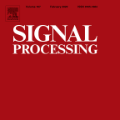This Signal Processing Grand Challenge (SPGC) targets a difficult automatic prediction problem of societal and medical relevance, namely, the detection of Alzheimer's Dementia (AD). Participants were invited to employ signal processing and machine learning methods to create predictive models based on spontaneous speech data. The Challenge has been designed to assess the extent to which predictive models built based on speech in one language (English) generalise to another language (Greek). To the best of our knowledge no work has investigated acoustic features of the speech signal in multilingual AD detection. Our baseline system used conventional machine learning algorithms with Active Data Representation of acoustic features, achieving accuracy of 73.91% on AD detection, and 4.95 root mean squared error on cognitive score prediction.
翻译:这一信号处理大挑战(SPGC)针对社会和医学相关性的一个困难的自动预测问题,即发现阿尔茨海默氏痴呆症(AD),邀请与会者采用信号处理和机器学习方法,以自发语音数据为基础建立预测模型,设计这项挑战是为了评估基于一种语言(英语)的语音(英语)向另一种语言(希腊语)概括的预测模型的程度,据我们所知,没有开展任何工作来调查多语言AD探测语言信号的声学特征,我们的基线系统使用传统机器学习算法,对声学特征进行积极的数据表示,在AD检测中达到73.91%的准确度,在认知分数预测中达到4.95根平均正方形错误。




